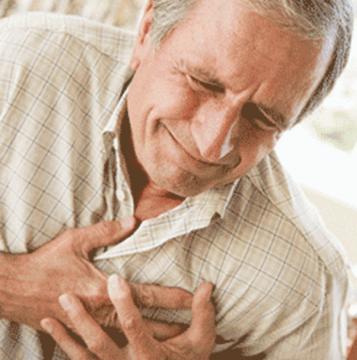This article will take you one minute to read, and it could be the difference between life and death
There is no way to know when we might have a heart attack. Could be right now or tonight, but if in our medical history there are things that indicate a predisposition for heart attacks, we should be prepared to survive one, just in case.
Signs of a heart attack
You should be experiencing a piercing pain in your chest, and it will expand to your jaw and either arm (most commonly the left).
Keep calm, and do not lose hope. Surviving a heart attack while you’re alone will depend on your ability to recognize these telltale signs. If you feel that your heart isn’t beating correctly, and you feel dizzy enough to faint, you only have around 10 seconds to lose consciousness.
The distance to the hospital doesn’t matter, you MUST call 911. If the pain is too much, and you remain too debilitated to make a phone call, then you will have to perform CPR (Cardiopulmonary Resuscitation) on yourself.
Step 1
Take in a deep breath
Step 2
Do not panic, and begin to cough vigorously and repeatedly.
Step 3
Again take in a deep breath, and cough. Repeat this procedure as many times as you have to. Your cough needs to be intense, like when you’re coughing phlegm.
Take in deep breaths, and cough every two seconds without stopping, until help comes, or until your heart begins to beat normally again.
The deep breaths will take oxygen to the lungs and the chest compressions from the coughing help keep the heart beating, and pumping blood throughout the body. The increased chest pressure also help the heart to “reset” itself, and regain its normal beating rhythm. This way, if you’re the victim of a heart attack, you will be able to call 911 or get to your nearest hospital.
Share this with as many people as possible. It can save their lives!
Nowadays, due to the change in our lifestyle, anyone can become a likely victim of a heart attack regardless of their age or weight.













